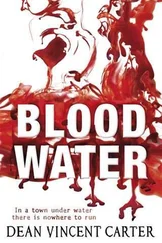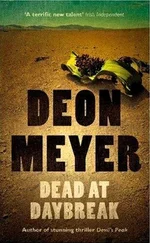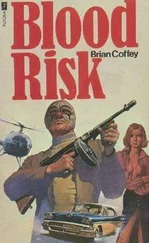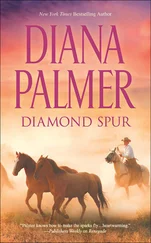Deon Meyer - Blood Safari
Здесь есть возможность читать онлайн «Deon Meyer - Blood Safari» весь текст электронной книги совершенно бесплатно (целиком полную версию без сокращений). В некоторых случаях можно слушать аудио, скачать через торрент в формате fb2 и присутствует краткое содержание. Жанр: Старинная литература, на английском языке. Описание произведения, (предисловие) а так же отзывы посетителей доступны на портале библиотеки ЛибКат.
- Название:Blood Safari
- Автор:
- Жанр:
- Год:неизвестен
- ISBN:нет данных
- Рейтинг книги:4 / 5. Голосов: 1
-
Избранное:Добавить в избранное
- Отзывы:
-
Ваша оценка:
- 80
- 1
- 2
- 3
- 4
- 5
Blood Safari: краткое содержание, описание и аннотация
Предлагаем к чтению аннотацию, описание, краткое содержание или предисловие (зависит от того, что написал сам автор книги «Blood Safari»). Если вы не нашли необходимую информацию о книге — напишите в комментариях, мы постараемся отыскать её.
In Blood Safari
A complicated man with a dishonorable past, Lemmer just wants to do his job and avoid getting personally involved. But as he and Emma search for answers from the rural police, they encounter racial and political tensions, greed, corruption, and violence unlike anything they have ever known.
Blood Safari — читать онлайн бесплатно полную книгу (весь текст) целиком
Ниже представлен текст книги, разбитый по страницам. Система сохранения места последней прочитанной страницы, позволяет с удобством читать онлайн бесплатно книгу «Blood Safari», без необходимости каждый раз заново искать на чём Вы остановились. Поставьте закладку, и сможете в любой момент перейти на страницу, на которой закончили чтение.
Интервал:
Закладка:
The voice over the radio went quiet for five minutes. When it came back it was different, hard and angry. ‘Listen carefully to me. Forty-Seven Dale Brooke Crescent, does that sound familiar? Forty-Seven Dale Brooke Crescent in Linden, Johannesburg.’
His parents’ address.
‘You have ten minutes to reply. Or I will send people. People who don’t give a shit. People who will slit a woman’s throat for fucking fun. Ten minutes. Then I’m phoning.’
43
Jacobus le Roux used the ten minutes to make up his mind. He left the radio under the overhang, woke Pego and they climbed down the canyon in the pitch dark before dawn with great difficulty.
Then they stumbled east beside the Nwaswitsontso, over four kilometres to the Mozambique border.
He had no other choice. If he answered them, they would shoot him and Pego. But he didn’t take the threat to his family seriously. His father was Somebody, his father knew Ministers, his father was a Supplier, and therefore an essential Cog in the Great Machine.
All they could do was disappear. Until these people had gone, until this affair was over.
They didn’t reach the border before the sun came up.
They heard helicopters just after the sky began to change colour. The far-off rhythm of their rotors was ever closer and louder. Jacobus found shelter and through the mopane leaves he watched two planes flying back and forth in a grid pattern on their side of the Ka-Nwamuri koppie. White planes, like yesterday’s Cessna, without letters or marks.
The helicopters searched for over an hour and then disappeared to the south.
Now Jacobus and Pego had to get past the Shishengedzim lookout post, and in broad daylight. The border post had a view over the canyon, but it had to be done. Pego was feverish and weak. And Jacobus was dead tired from supporting him.
He staggered the four hundred metres past the rangers’ lookout post and waited for the shots. He could feel them, even though none was fired. Two or three times he looked up at the building, but there was no sign of life, nobody there, no game wardens, just the people back at Ka-Nwamuri with their cables on the slope and their electronic eyes in the veld.
He cut the border fence and they were through to Mozambique. All down the river, there was no sign of life, no animals, no people, just the searing heat and his fatigue. Six hours later, they saw women washing laundry in the river.
Pego could speak their language. He could tell them, ‘Don’t fear the white man, he saved my life, they are hunting him too, we just want to rest a while.’
They slept that night in the nameless hamlet. The grizzled headman called himself Rico and told them through Pego that his country was burning, Mozambique was aflame, the war was destroying everything. The locals never left their village. Now and then the elephant poachers would pass through and leave them something, money or food or clothing, in exchange for a place to rest. But look, there were no young men; they had all gone away to war, just to stay alive.
On Sunday, 19 October, Jacobus and Pego heard a dreadful noise, the night sky ripped apart from north to south, very close by, thundering and deafening. Jacobus ran out of the hut and saw a flickering red light low on the horizon.
The following day at three o’clock in the afternoon, they got the news.
Samora Machel, President of Mozambique, was dead. His aeroplane had crashed the previous night near Mbuzini, just a hundred and thirty kilometres away.
Jacobus hadn’t immediately put two and two together, because the women had begun wailing and the wrinkled Rico shook his head and said, ‘Uma coisa má, urna coisa má,’ over and over. Then he told Pego that the white man must go; there was big trouble coming. The white man must go.
The Mozambicans gave him clothes and a bundle of food and water and said they would take his rifle in exchange. They explained to him where to go to reach Swaziland, where he would be safe.
Pego threw his arms around his friend and said, ‘Thank you, my brother, I will see you again,’ and so he left, travelling first down the river to the south-east, looking for a dusty road. As he walked he slowly but surely pieced it all together.
The two-hundred-kilometre trek took him nearly a week. He walked only at night, hiding every time there were people or vehicles or aeroplanes around.
He crossed the mountain into Swaziland eight kilometres east of the Lomahasha border post. At the little Catholic church at Ngwenya Peak he washed and ate properly for the first time. The priests gave him a bed and he slept for two days. They gave him clothes because the ones he was wearing were in rags. They told him he wasn’t the first white South African to arrive there. They had had two others, conscientious objectors who didn’t want to do compulsory military service. There were people in Manzini who could help. He had to wait for the lorry that came on Thursdays. They couldn’t give him much. They gave him SZL 20, twenty lilangeni. Go with God.
In Manzini he saw the newspapers a week after the death of Samora Machel. Fingers were pointed at the South African government. Africa and the Russians were incensed.
He phoned his father’s office from a telephone booth and the switchboard put him through to his father’s secretary, who caught her breath when he said, ‘Hello, Alta,’ and she said, ‘Jacobus?’
Then the line went dead.
He tried to phone again, but it wouldn’t ring. He took his coins and walked off, but the phone rang. He stopped. Looked around. There was nobody near by.
He walked back and picked up the phone. ‘Hello?’
‘You’re in Swaziland. We’re going to get you. But listen …’
He was frozen. It was a new voice, not the one on the radio.
‘If you try to phone your father again, if you make contact with anyone, we will cut their throats. We will know. I want you to understand that.’
He was dumb.
‘I want to hear you say you understand that.’
‘I understand.’
‘Your father drives a white Mercedes Benz, TT 100765. Every afternoon he drives the same route from the office. Accidents happen so easily. Your mother goes to the afternoon prayer meeting at the Dutch Reformed Church every Wednesday. She leaves the house alone at twenty to seven in her Honda Ballade, registration TJ 128361. She’s a soft target. Your sister walks home from school every afternoon. I think you get the message. Tell me again that you understand.’
‘I understand.’
‘Very good. I see that you’re in Manzini. If you stay there I will send some people to talk to you. We can work this thing out.’
He realised that the man wanted to keep him on the line. Maybe there were already people here looking for him. He stopped listening.
He put down the phone and walked away, quickly, from his life.
The first one was easy because I knew where he was and I knew that he was the one who had shot Emma.
I waited until nine o’clock that night. I crept across the river in the night shadows. I approached him from behind. He lay on his stomach, quite comfortably, with the Galil on the tripod in front of him. Now and then he peered through the night sight.
Beside him lay a rucksack. There would be food and drink in it. I needed that.
It’s impossible to be totally silent in the bush, never mind how careful you are. There was a distance of three metres between us when the tiny, invisible twig cracked under my foot. I saw him instinctively turn his head first, and then his upper body jerked around, but I was on my feet with the knife in my right hand. He stood up hurriedly. He did what most people would do – he tried to use his weapon, the sniper rifle. He swung it at me.
Читать дальшеИнтервал:
Закладка:
Похожие книги на «Blood Safari»
Представляем Вашему вниманию похожие книги на «Blood Safari» списком для выбора. Мы отобрали схожую по названию и смыслу литературу в надежде предоставить читателям больше вариантов отыскать новые, интересные, ещё непрочитанные произведения.
Обсуждение, отзывы о книге «Blood Safari» и просто собственные мнения читателей. Оставьте ваши комментарии, напишите, что Вы думаете о произведении, его смысле или главных героях. Укажите что конкретно понравилось, а что нет, и почему Вы так считаете.












